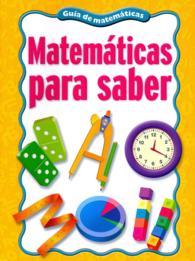Full Description
This book offers a truly interdisciplinary exploration of our patterns of engagement with politics, news, and information in current high-choice information environments. Putting forth the notion that high-choice information environments may contribute to increasing misperceptions and knowledge resistance rather than greater public knowledge, the book offers insights into the processes that influence the supply of misinformation and factors influencing how and why people expose themselves to and process information that may support or contradict their beliefs and attitudes.
A team of authors from across a range of disciplines address the phenomena of knowledge resistance and its causes and consequences at the macro- as well as the micro-level. The chapters take a philosophical look at the notion of knowledge resistance, before moving on to discuss issues such as misinformation and fake news, psychological mechanisms such as motivated reasoning in processes of selective exposure and attention, how people respond to evidence and fact-checking, the role of political partisanship, political polarization over factual beliefs, and how knowledge resistance might be counteracted.
This book will have a broad appeal to scholars and students interested in knowledge resistance, primarily within philosophy, psychology, media and communication, and political science, as well as journalists and policymakers.
The Open Access version of this book, available at www.taylorfrancis.com, has been made available under a Creative Commons Attribution-Non Commercial-No Derivatives 4.0 license.
Contents
1. Introduction: Toward Understanding Knowledge Resistance in High-Choice Information Environments; 2. What is Knowledge Resistance?; 3. From Low-choice to High-choice Media Environments: Implications for Knowledge Resistance; 4. Disinformation, Misinformation, and Fake News: Understanding the Supply Side; 5. Selective Exposure and Attention to Attitude-consistent and Attitude-discrepant Information: Reviewing the Evidence; 6. Relevance-Based Knowledge Resistance in Public Conversations; 7. Responsiveness to Evidence: A Political Cognition Approach; 8. Reports of the Death of Expertise May Be Exaggerated: Limits on Knowledge Resistance in Health and Medicine; 9. Is Resistance Futile? Citizen Knowledge, Motivated Reasoning, and Fact-Checking; 10. Uninformed or Misinformed? A Review of the Conceptual-Operational gap Between (Lack of) Knowledge and (Mis)perceptions; 11. Striving for Certainty: Epistemic Motivations and (Un)biased Cognition; 12. Political Polarization Over Factual Beliefs; 13. The Democratic Gold-Standard of Fact-Based Issue Ambivalence; 14. Overcoming Knowledge Resistance: A Systematic Review of Experimental Studies








